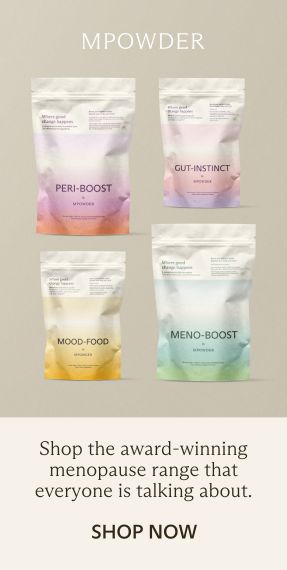From conversations with medical practitioners on how our hormones reduce stress resilience to the holistic practices that can support our bodies and minds. We’ve also hosted workshops for practitioners in our community in order to share the herbal and botanical protocols that can further calm our stress response.
We learned that:
- Chronic stress affects production of the stress hormone cortisol, impacting on oestrogen and progesterone secretion, as well as testosterone.
- In turn, cortisol production increases blood sugar and insulin resistance, making it harder for us to sleep and to manage our weight.
- Sleep deprivation is a risk factor for cardiovascular disease, diabetes, obesity, mental health problems and more..(and that anxiety around sleep makes it worse…)
- And…lack of sleep leads to an increase in ghrelin, our ‘hunger hormone’ and a decrease in the production of leptin, the hormone that suppresses appetite.
Our resident naturopath and herbalist Dr Martins recommends:
- Ashwagandha, lemon balm and cacao - all found in our formulations - to support our stressed bodies and minds as well as aid sleep.
- Cinnamon and moringa - again, present in therapeutic dosage levels in Peri-Boost - to support weight management and blood sugar balance.
- Vitamins & minerals - ensure you’re getting enough magnesium, nature’s ‘calming’ mineral as well as vitamin D, a deficiency of which has been shown to increase our risk of disordered sleep.
- Follow the sun: Exposure to daylight first thing in the morning and at sun set to regulate our circadian rhythms.
- Breathe consciously: Just slowing our breathing to 8 breaths per minute can activate the vagus nerve and engage our parasympathetic nervous system.
- Spend time in nature - walking amongst trees has been shown to reduce blood pressure, increase our immunity and switch from fight and flight to rest and digest).
My reflections? There is significant value in exploring new tools to calm your mind in midlife. But it’s the fundamentals that make the biggest difference.
In his book, ‘The Lazarus Strategy; how to age well and wisely’, Dr Norman Lazarus riles against the rejection of the commonplace evidence surrounding nutrition, movement and mental health to enhance healthspan:
‘How long have these ideas been around? Well, Plato said ‘The part can never be well unless the whole is well’...
Source: The Lazarus Strategy; how to age well and wisely’ Dr Norman Lazarus
Why do we procrastinate, or seek more ‘proof’ on the simple, everyday actions that have the power to transform how we feel?
Researchers believe that familiarity with a concept or experience, dampens the reward and dopamine result over time. It’s why we crave new things. It may also be why we reject simple, familiar practices to support our health in the pursuit of the next promise.
When I look at my own rituals and habits, I realise I’ve been guilty of this in recent months. I know that daily journaling and meditation have a huge impact on my ability to cope with stress. Yet I’ve let it slip. Like a bucket that slowly drains, I’ve only really started noticing the impact now - weeks after the habit was broken - and, as critically, when I’ve needed to call on my resilience.
But identifying the impact of not employing stress-management tools was not enough. I found myself rationalising that I was ‘too busy’ to journal - and ‘too stressed’ to meditate! I forgot I didn’t need to be in an optimised state to start. I forgot that the act of ‘doing’ is what matters.
So this weekend, I’m making time to re-establish my morning routine. 20 minutes, every day, carved out before the house wakes. 3 days of bank holiday to start filling that bucket! - so that I enter May replenished. I hope that you can find that time to nourish yourself too.
With love, Rebekah & The MPowder Team
Share Twitter Facebook Pinterest

